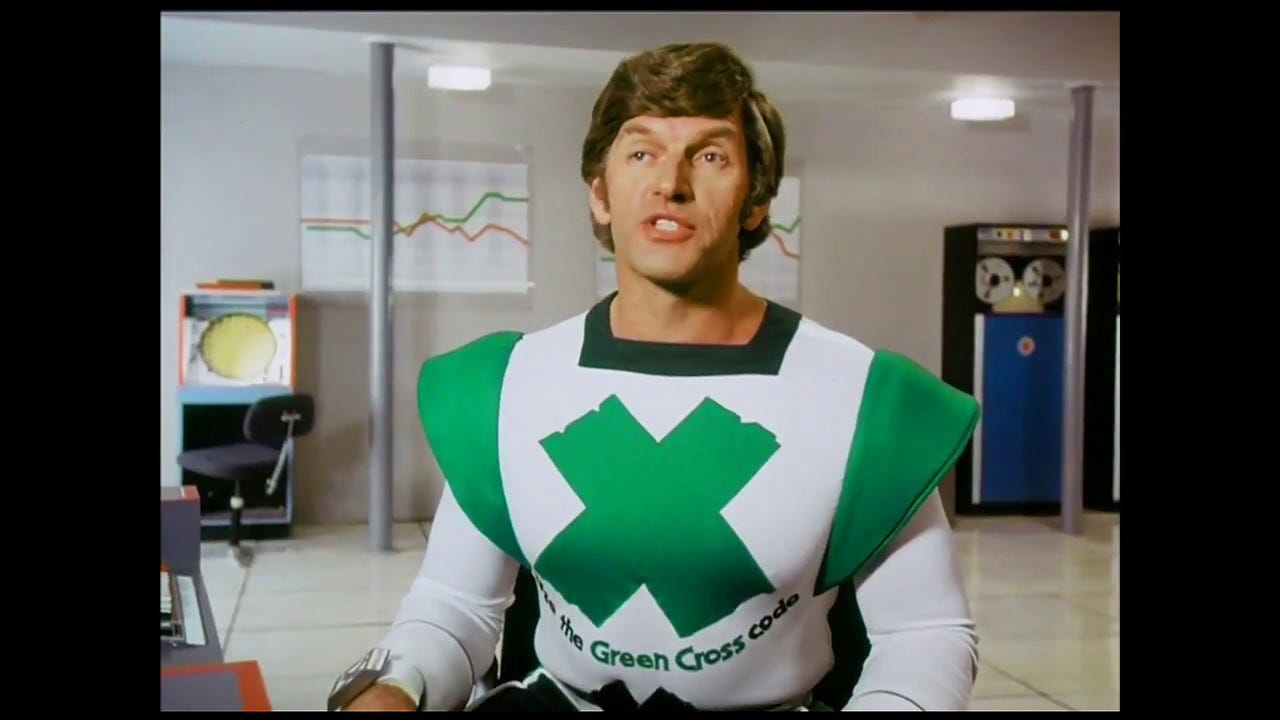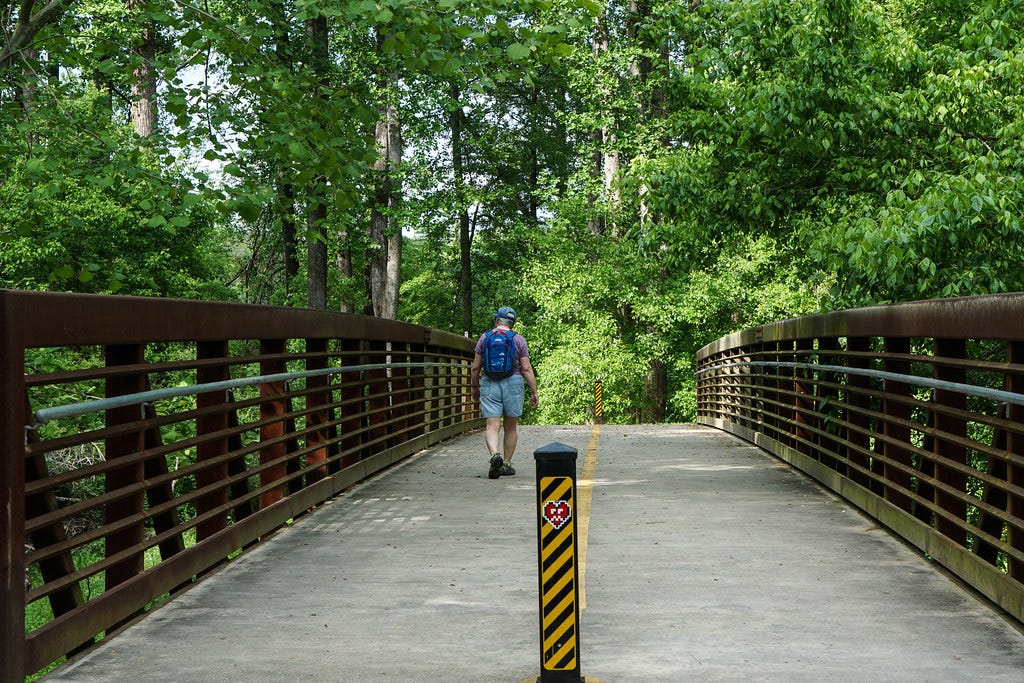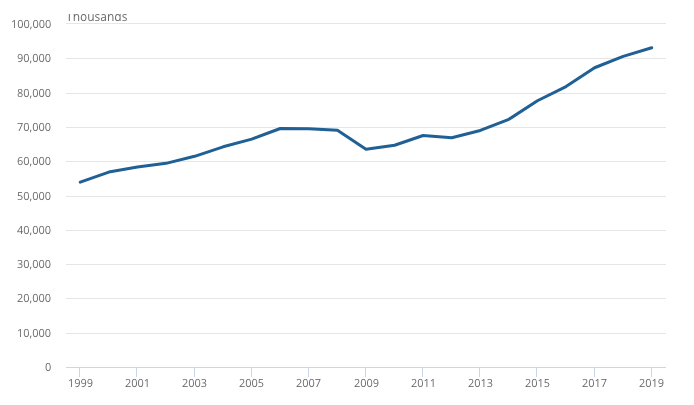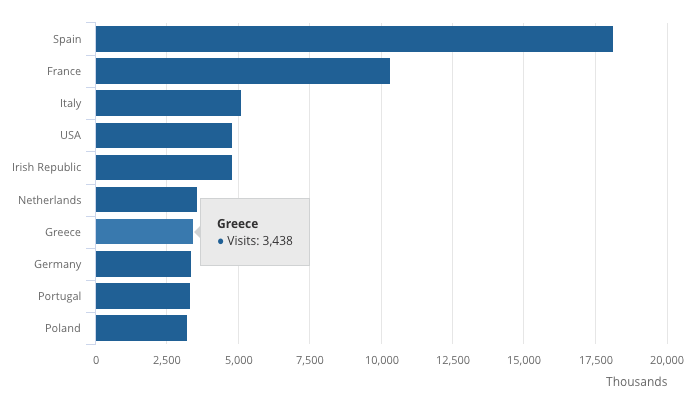Mobility Matters Daily #113 - Green Man, Highway Removals, and Constant Learning
With data on holidays to boot
Good day friend.
This week will be what us Brits refer to as ‘actual summer.’ This happens for just one week a year. It is where the sun us out, the tempuratures are high, the air is so thick with humidity you can cut it with a spoon, and for just a few days I don’t feel guilty about having air conditioning in my car. With it also being the school summer holidays, I expect to see more families on their bikes, riding the local bridleways.
James
The Green Man to be the default setting
An article in The Evening Standard carried the announcement made some weeks ago by Transport for London that plans for Green Person Authority - or simply the default setting being the green man is on, and the traffic signals are red - is to be rolled out to 18 crossings across London. Building upon an initial pilot of 7 locations.
I have not seen an impact study that shows the safety and pedestrian environment impacts of changing the signal priority quite as profoundly as this. In principle this should be supported, but I guess the crux of the matter is the impact upon collisions with pedestrians and how such signals manage conflicts. For example, who gets priority when a vehicle and a pedestrian approach the signal at the same time?
Of course, to Brits of a certain age the Green Man means something else entirely. Involving funny outfits, road safety, and the man who plays Darth Vader.

When highway removal isn’t as just as we think it is
The removal of major highways, and consequently righting the wrongs of the past when it comes to highway construction, is a popular urbanist idea. For good reason - who wouldn’t want less emissions, less cars, and better street spaces? But this article by Emily Henderson reminds us that cities are adaptable, and to some degree living and breathing things. So highway removals can have unintended consequences.
A couple of great examples. Rerouting the Cypress Freeway and the construction of the Mandela Parkway boulevard in West Oakland did reduce air pollution, but the city is still heavily polluted, and property values have spiked around Mandela Parkway forcing out some previous residents. Meanwhile the Atlanta Beltline - a new open space constructed on a former railway alignment - reports that well-off white residents are more likely to use it than black residents. This does not mean that these schemes are bad, but their impacts are uncertain, and lessons need to be learned to make future schemes more just.

Even the best learn from others
Chris Bruntlett pointed my way towards this article on the experience of the Dutch railways in transforming itself from a laughing stock into a reliable railway by learning from the Japanese. What struck out at me was how this was not largely co-ordinated in terms of formal field visits and structured learning (though there was some). But through informal, ad hoc, but constant learning and striving to do better.
The idea of delivering marginal gains is well understood, but poorly delivered. Rather than wait for a big infrastructure project, maybe transport planners can focus on the 1% marginal gains constantly as well. I daresay that our transport planning system in the UK makes constant learning the exception rather than the norm.
Stat of the Day




With it being the summer holidays, and this year and last being a somewhat strange in terms of travel for holidays, I thought it would be good to share some travel statistics today. The British like to get away, and Spain and France have been the most popular destinations all of the time I have been alive (in fact, I have taken a ferry to both countries from the UK). But the importance of the USA is always underestimated.
Source: ONS
If you do nothing else today, do this
Read the Law Commission’s analysis of responses to their automated vehicles consultation. It is very good, and very comprehensive.
